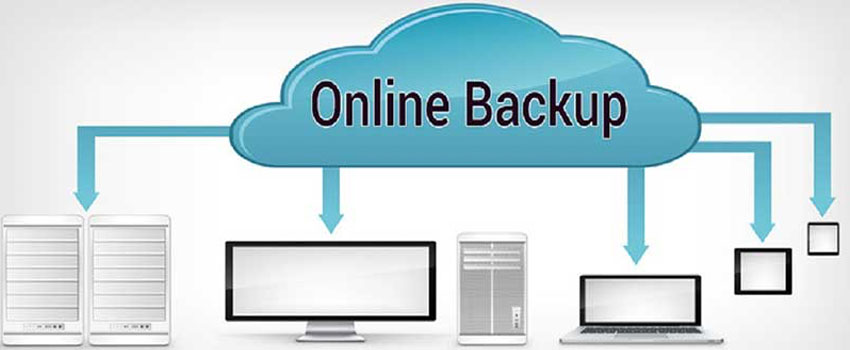Online Storage vs Online Backup – There are a number of services that provide online space for storing your data. Some use the term online storage, while others use the term online backup. So, many users get confused here and develop a thought that online storage and online backup are the same. But the reality is a bit different. If your purpose is to have a backup copy of data online, then opting for online storage platforms does not justify your backup needs. To clarify this confusion, this blog presents a comprehensive guide on online storage vs online backup.
Main Purposes of Online Storage and Online Backup Services
To understand why online storage and online backup are two different elements, you first have to understand the main purpose behind these services.
Online storage services (Dropbox, OneDrive, and Google Drive) are meant to provide remote access to data, mobile app, and easy sharing. This implies that they have oriented their services for three main elements, i.e., online storage, anywhere accessibility from a number of devices, and easy sharing. You can visit the webpage of Dropbox, OneDrive, and Google Drive to witness that they are just focusing on the above three features.
Online backup services (Backup Everything, IDrive, and Carbonite Safe) are meant to provide automated and continuous backup of your data in the cloud. Their services comprise backup-specific elements, such as unlimited online backups, top-notch security, automation, file syncing, and similar others. Most of such services install backup software in your computer, which automatically detects and transfers data to the cloud without disturbing you. So, unlike online storage services where mostly you have to manually store data in the cloud, online backup services conduct automated processes.
Why Online Storage Services cannot be used for Backups?
Online storage stores data in the cloud and online backup also stores data in the cloud, then why online storage services cannot be used for backups? This is a basic question that might be circling in your mind. It is true that both approaches provide cloud data storage, but online storage is not truly meant for backup. Here are the four main reasons that justify the claim:
- Cost
If you are opting for online storage services with the main purpose to have a copy of your files and folders online, then the per Gigabyte cost is going to be more compared to the unlimited storage space cost in the case of online backup services. The online storage services usually provide you with some free storage space, but you will have to pay them for additional storage.
On the other hand, online backup services provide unlimited backup space at a fraction of the cost. In addition, many online backup services also provide 30 days trial run of their services so that you can ensure that you are picking the right backup service.
- Limited Storage Space
It may sound strange, but with most online storage services, you will be getting limited storage space. For example, Dropbox provides 2TB of storage for $9.99/month. So, if you have large videos to store or want to keep file versions, then the restricted storage space isn’t going to help you much. In addition, some services also have other kinds of limits, such as file size and the data volume you can upload at specific times.
Not all but many online backup services provide unlimited storage space to store an unlimited number of backups. There is no such limitation of file size. They intelligently backups data from your computer to the cloud. This way, you never have to worry about cloud storage space and enjoy additional benefits of syncing services, deleted files temporary storage, etc.
- Security
With the growing concerns of cyber-attacks and data breaches, nobody wants their cloud-stored data to get compromised. Thereby, encryption is the key in present times. Online storage services are oriented for quick access and sharing, so the level of their data security isn’t the best. For example, the majority of such services encrypt data stored on their servers, but they don’t facilitate local encryption on the computer prior to syncing with the cloud.
On the other hand, cloud backup services provide a double-layer of security. They first encrypt your data with a private key (specific for your data) and then syncs that encrypted data to the cloud in their encrypted servers. This way it becomes mission impossible for hackers to get access to your data and decrypt it. The encryption keys are specific to each user, so no one other than the user can access the backed-up data.
- Ease of Use
There is no doubt that online backup services provide an easy-to-use and user-friendly interface with feature-rich services, but most of them lag in providing automated file syncing. You have to manually transfer files from local storage to the cloud and also assign the folders. As their main goal is to provide remote accessibility and sharing, so they are not much oriented towards automated transferring.
If your main goal is to back up your locally stored data, then you should opt for online backup services because their services are more oriented for this purpose. You will experience continuous and automated backups, where you don’t even have to tell the service about what data to be backed up. In addition, you get a quick and efficient data restoration service, while can also get a copy of your backed-up data on an external hard drive.
When to opt for Online Storage vs Online Backup
The above points highlight that online storage services are not ideal for backup, the same is true in the opposite case. Online backup services are not meant for collaboration, so they don’t provide the high-level of PC and mobile devices accessibility as in the case of online storage services.
You should opt for online storage services if your main goal is to have centralized remote data storage with smooth sharing and collaborating support. But if you want to regularly secure your important files in an automated way to avoid losing them in any data calamity, then online backup services are the best choice.
Online Storage vs. Online Backup: What are the Key Differences?


